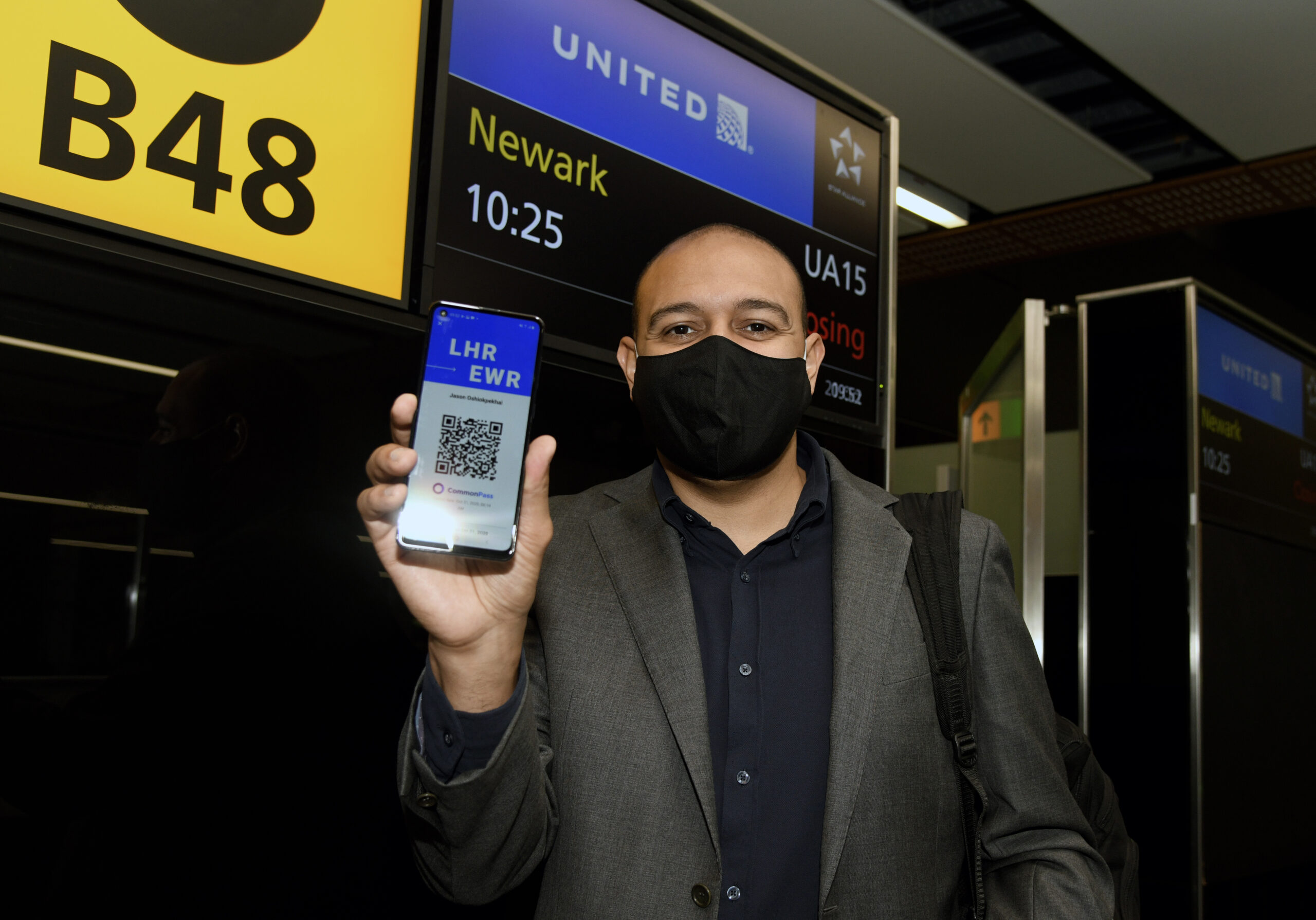It may sound dystopian but the next step for travel in the viral age is the roll-out of a globally recognised digital health pass. Erica Jamieson reports
Travel trade body IATA (International Air Transport Association) is in final development stages of its Travel Pass initiative, a digital health pass intended to to streamline travel across borders in the age of Covid-19.
It is similar to CommonPass (pictured above), which has been tested on flights between London and New York, and AOKpass, in use between Abu Dhabi and Pakistan.
The mobile application is designed as a one-stop-shop for travellers to source information on travel health requirements and present certified testing and vaccination credentials when going overseas.
Using IATA Timatic software, a programme currently used by airlines to ensure that customers are compliant with border rules and regulations, the Travel Pass will compile a registry of health requirements per country, including testing stipulations.
The platform will then point users to certified testing and, eventually, vaccination centres, so that travellers know where to go to get the right kind of service.
The app will integrate with laboratory facilities to receive test results and vaccination certificates directly, which travellers can then present to airline personnel and border security.
Finally, IATA’s One ID technology will enable users to create a “digital passport”, so that health credentials are digitally connected to an individual’s travel documents, facilitating seamless travel. (Pictured below is a passenger using the CommonPass app.) IATA sees the Travel Pass as a “global and standardised” solution to the current confusion and complication surrounding crossing international borders. With individual countries creating distinct entry requirements for travellers, some varying by destination country and nationality, the information gap for passengers, airport personnel, and airline staff, remains a challenge.
IATA sees the Travel Pass as a “global and standardised” solution to the current confusion and complication surrounding crossing international borders. With individual countries creating distinct entry requirements for travellers, some varying by destination country and nationality, the information gap for passengers, airport personnel, and airline staff, remains a challenge.
The vast array of ever-changing information has led to procedural inconsistencies and fraud, a danger to countries working to limit outbreaks.
In mid-December, British Airways, Emirates, KLM and Nepal Airlines all received a two-week suspension on flights to Hong Kong after positive Covid-19 cases were identified on arriving flights, and airline employees failed to verify passengers’ health credentials.

IATA, which represents approximately 290 airlines comprising 82 per cent of global air traffic, estimates that airlines have lost nearly US$119 billion during the pandemic, with the number of air travellers dropping from 4.5 million last year to 1.8 million this year.
IATA sees increased reliability in testing and adherence to government health regulations as the necessary precursor to safe and secure travel without need to quarantine, until a vaccine becomes more widely available.
“Today borders are double locked. Testing is the first key to enable international travel without quarantine measures,” says Alexandre de Juniac, IATA’s director general and CEO.
“The second key is the global information infrastructure needed to securely manage, share and verify test data matched with traveler identities in compliance with border control requirements.
“That’s the job of IATA Travel Pass. We are bringing this to market in the coming months to also meet the needs of the various travel bubbles and public health corridors that are starting operation,” he says.
IATA has stressed that personal health data will be stored on users’ phones, rather than a central registrar, and that its technology complies with the EU General Data Protection Regulation.
Singapore Airlines is currently conducting a trial of the software on flights from Jakarta and Kuala Lumpur to Singapore, where a negative Covid-19 test is required prior to arrival.
Passengers who test at one of 12 designated facilities are presented with a QR code to scan at the airport during check-in, creating an efficient pathway to proof of results from trusted testing centers.
If successful, the airline plans to expand the programme, integrating it with the SingaporeAir app by mid-2021. IATA has stated that the Travel Pass will be trialled by British Airways, also.
Slated for full launch on Apple and Android in Q1, 2021, IATA’s Travel Pass will join the rush for tech-based solutions to solve the challenge of pandemic-era international travel.
With counties and airlines already indicating that they will require proof of vaccination to fly, a global solution that digitally integrates health records and travel documents seems essential, and inevitable.





